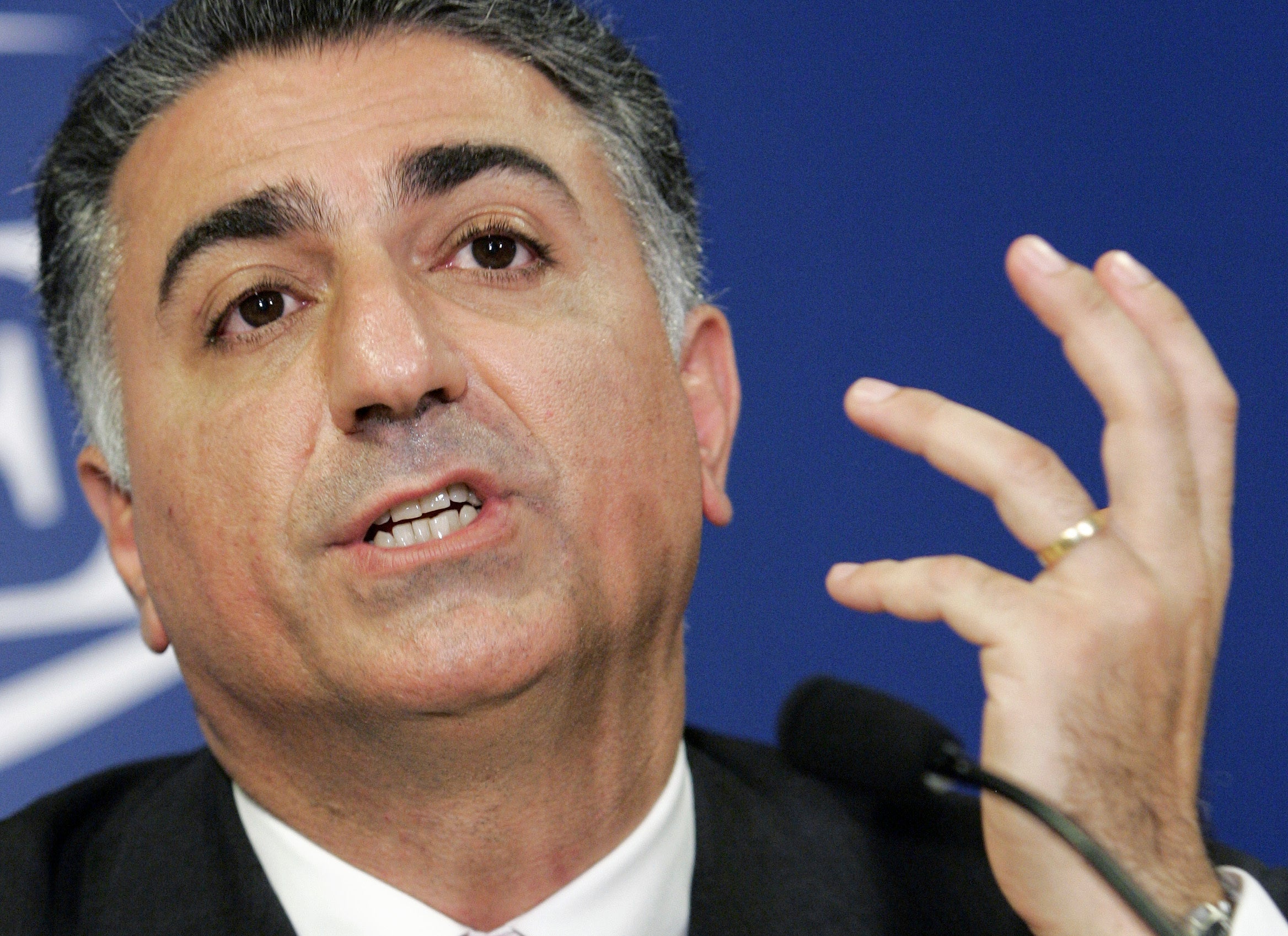Son of Iran's last shah set to make first visit to Israel
Iran’s exiled crown prince is scheduled to come to Israel this week

Your support helps us to tell the story
From reproductive rights to climate change to Big Tech, The Independent is on the ground when the story is developing. Whether it's investigating the financials of Elon Musk's pro-Trump PAC or producing our latest documentary, 'The A Word', which shines a light on the American women fighting for reproductive rights, we know how important it is to parse out the facts from the messaging.
At such a critical moment in US history, we need reporters on the ground. Your donation allows us to keep sending journalists to speak to both sides of the story.
The Independent is trusted by Americans across the entire political spectrum. And unlike many other quality news outlets, we choose not to lock Americans out of our reporting and analysis with paywalls. We believe quality journalism should be available to everyone, paid for by those who can afford it.
Your support makes all the difference.Iran's exiled crown prince is scheduled to come to Israel this week on a visit that reflects the warm ties his father once had with Israel and the current state of hostility between Israel and the Islamic Republic.
Reza Pahlavi, the son of the last shah to rule Iran before the 1979 Islamic Revolution, said Sunday that he will be delivering “a message of friendship from the Iranian people.”
He is set to participate in Israel's annual Holocaust memorial ceremony on Monday night, said Israeli Intelligence Minister Gila Gamliel, who will host him. He is also set to visit a desalination plant, see the Western Wall and meet representatives of the local Bahai community and Israeli Jews of Iranian descent, she said.
Gamliel praised the “brave decision” by Pahlavi to make what she said would be his first visit to Israel. “The crown prince symbolizes a leadership different from that of the ayatollah regime, and leads values of peace and tolerance, in contrast to the extremists who rule Iran,” she said.
Pahlavi left Iran at age 17 for military flight school in the U.S., just before his cancer-stricken father Mohammad Reza Pahlavi abandoned the throne for exile. The revolution followed, with the creation of the Islamic Republic, the takeover of the U.S. Embassy in Tehran and the sweeping away of the last vestiges of the American-backed monarchy.
Pahlavi, who still resides in the U.S., has called for a peaceful revolution that would replace clerical rule with a parliamentary monarchy, enshrine human rights and modernize its state-run economy.
Whether he can galvanize support for a return to power is unknown. His father ruled lavishly and repressively and benefitted from a CIA-supported coup in 1953. The late shah also had close diplomatic and military ties with Israel.
That ended in 1979, when the Iranian revolution’s leader, Ayatollah Khomeini, declared Israel an “enemy of Islam” and cut all ties. Today, the countries are arch-enemies. Israel considers Iran to be its greatest threat, citing the country's calls for Israel's destruction, its support of hostile militant groups on Israel's borders and its nuclear program. Iran denies accusations by Israel and its western allies that it is pursuing a nuclear bomb.
“I want the people of Israel to know that the Islamic Republic does not represent the Iranian people. The ancient bond between our people can be rekindled for the benefit of both nations,” Pahlavi said on Twitter.